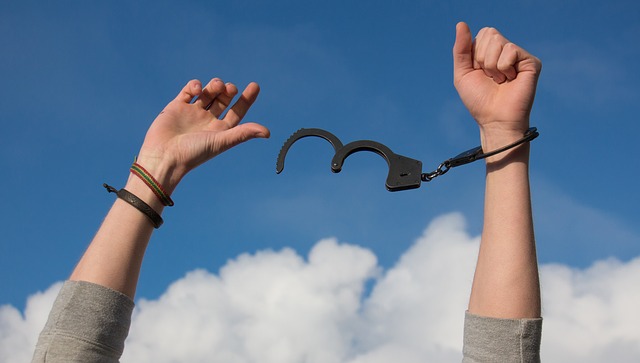 According to Part 4 of Art. 309 of the Criminal Code of Ukraine, a person who voluntarily applied to a medical institution and began treatment for drug addiction is released from criminal liability for the actions provided for in part 1 of this article (illegal production, manufacture, acquisition, storage, transportation or forwarding of narcotic drugs, psychotropic substances or their analogs without sales purpose). The basis for exemption from criminal responsibility in such a case is the voluntary application to a medical institution of a person suffering from drug addiction and the drug addiction treatment initiated by him.
According to Part 4 of Art. 309 of the Criminal Code of Ukraine, a person who voluntarily applied to a medical institution and began treatment for drug addiction is released from criminal liability for the actions provided for in part 1 of this article (illegal production, manufacture, acquisition, storage, transportation or forwarding of narcotic drugs, psychotropic substances or their analogs without sales purpose). The basis for exemption from criminal responsibility in such a case is the voluntary application to a medical institution of a person suffering from drug addiction and the drug addiction treatment initiated by him.
Voluntary in the context of part 4 of Art. 309 of the Criminal Code of Ukraine should be considered such an application of a person to a medical institution, which is carried out with his personal consent or the consent of a legal representative, which took place before the court of first instance went to the consultation room to make a decision in criminal proceedings. For the application of this norm, the previous fact of a person being on the register of persons who illegally use narcotic drugs or psychotropic substances is not decisive, since the fact of a drug addiction disease in such a person can be established for the first time.
Such a conclusion was made by the combined chamber of the Criminal Court of Cassation as part of the Supreme Court, after considering the cassation appeal of the prosecutor against the decision of the court of appeal in criminal proceedings on the charge of a person of illegal acquisition and possession of narcotic drugs without the purpose of sale (Part 1 of Article 309 of the Criminal Code of Ukraine).
As noted by the OP of the Supreme Court of Justice, the norm of part 4 of Art. 309 of the Criminal Code of Ukraine is encouraging in nature. The legislator, formulating the conditions for exemption from criminal liability for the illegal production, manufacture, acquisition, storage, transportation or forwarding of narcotic drugs, psychotropic substances or their analogues without the purpose of sale, set the goal of curing a person from the disease of drug addiction, which is more severe, if compared, for example, with alcoholism. Therefore, a person's referral to a medical institution, even during a court proceeding, achieves the goals for which this norm was designed.
Punishment of a person suffering from drug addiction, regardless of whether he applied for such treatment for the first time or already underwent a course of treatment, was on the appropriate record before entering information to the EDPR in this procedure or not, should not be a priority and prevail over the goal of curing the person.
In addition, the legislator did not limit the application of Part 4 of Art. 309 of the Criminal Code of Ukraine by the fact of being on the register of persons who illegally use narcotic drugs or psychotropic substances before committing this criminal offense.
The reasons that were decisive for making a decision to apply to a medical institution for drug addiction treatment can be different. However, the key is a voluntary decision by a person suffering from drug addiction regarding the need for such treatment. OP KKS VS believes that the reasons that preceded a person's referral to a medical institution for drug addiction treatment should not override the very fact of such referral and question voluntariness as such.
The legislator defines the concepts and grounds for forced treatment of persons suffering from drug addiction (Article 16 of the Law of Ukraine "On measures to counter the illegal circulation of narcotic drugs, psychotropic substances and precursors and their abuse"). Any other referral for drug addiction treatment is voluntary. The court cannot establish additional conditions for establishing the fact of voluntariness.
Resolution of the Supreme Court of Justice of the Supreme Court in case No. 357/11205/19 (proceedings No. 51-2776kmo21) – https://reyestr.court.gov.ua/Review/101592405 .




